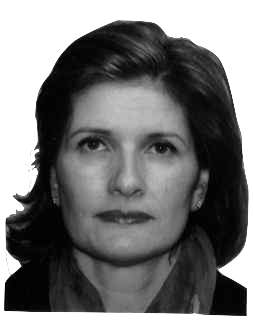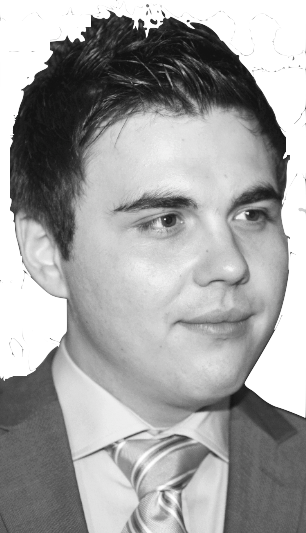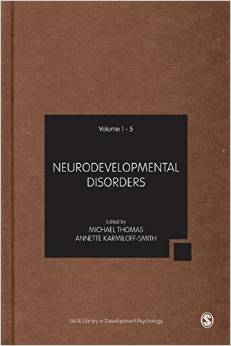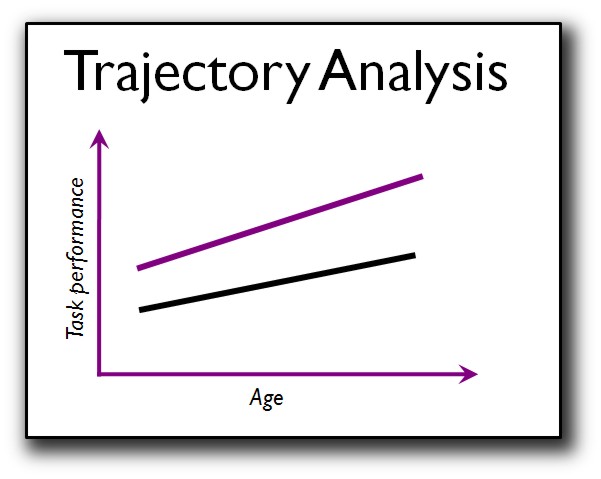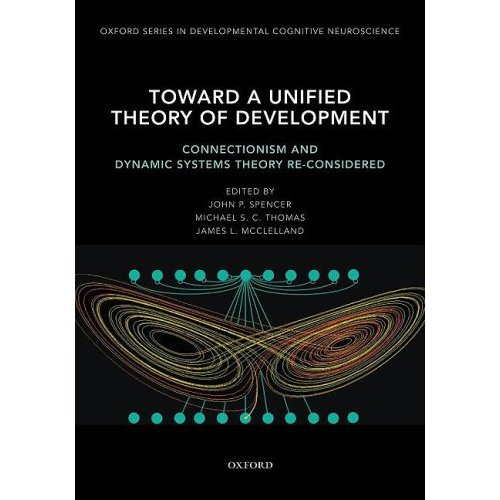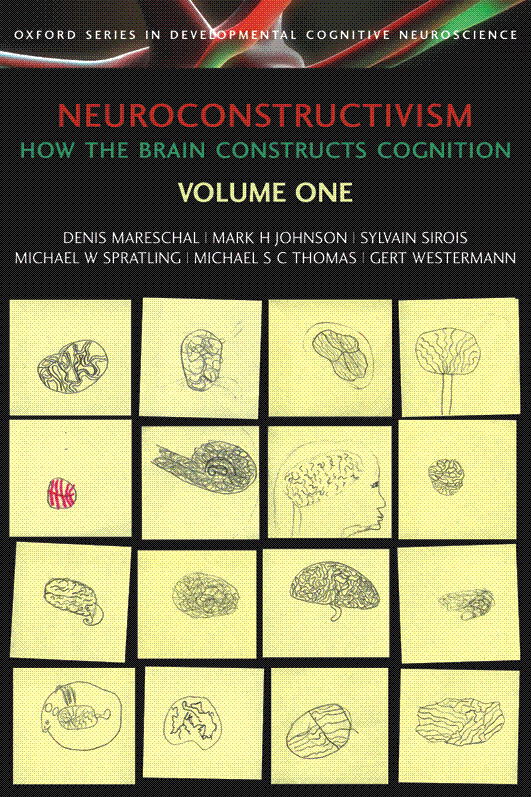
|
|||||||||
| We are a research laboratory in the Centre for Brain and Cognitive Development, Department of Psychological Sciences, Birkbeck, University of London. | |||||||||
In the post-genomic age, there is increasing interest in the link between genes and behaviour, as well as the impact of environmental influence. Twin study research indicates that genes can explain up to half the variation between individuals in their intelligence or personality traits. Genes have been strongly implicated in causing developmental disorders. However, the link between genes (which express proteins within cells) and people's behaviour is very indirect. Our goal is to establish a cognitive level explanations of cognitive variability. A theory at this level can ultimately serve as a way to connect genes and behaviour. One day, we hope to answer the question: What computational property does your brain have more of if you're intelligent? We have three principal methods for pursuing this research: (1) We have a strong emphasis on building neurocomputational models of development. This allows us to explore in detail the computational parameters that can allow learning systems to acquire a more or less sophisticated understanding of their environment. Our work thus far has explored language and cognitive development in infants and children, intelligence and individual variability, and approaches to capturing deficits in disorders including Williams syndrome, Specific Language Impairment (SLI), and developmental dyslexia. (2) We collect behavioural data to help us understand in more detail what is different about the cognitive systems of individuals with various levels of ability. This includes individuals at the upper and lower ends of normal variation, and individuals with developmental disorders. For the typically developing population, we are interested in understanding the link between intelligence and cognitive development. Is intelligence like having a little bit of extra cognitive development, so that less intelligent children will reach the same level of ability at a slightly later age? Or is intelligence something qualitatively different to development, so that more or less intelligent children think slightly differently whatever their ages? With regard to developmental disorders, our current focus is on language development, face processing, and visuospatial cognition in children with disorders including Williams syndrome, Down syndrome, autism, and SLI. (3) In collaborative work with the Functional Imaging Laboratory at UCL, we are using brain-imaging techniques to explore how neural processes alter across development, and how these patterns differ in developmental disorders, thus far concentrating on language. The brain-imaging work includes both structural and functional studies, and focuses on typical development and on Specific Language Impairment. A central theme of our research is that the effects of genes and environments must be viewed from a developmental perspective. Whatever parameters produce more or less effective cognitive systems (be they mutated genes or different environments), these serve as constraints that shape the developmental processes. Both in our empirical and computational work, we therefore focus on developmental trajectories. In this perspective, we have been particularly influenced by the work of (among others), Annette Karmiloff-Smith, Elizabeth Bates, Mark Johnson, Jeffrey Elman, Jay McClelland, David Rumelhart, Mark Seidenberg, Kim Plunkett, Virginia Marchman, David Plaut, Barbara Finlay, and Dorothy Bishop, and are much indebted to these researchers. In some of our work, we have considered the implication of our theoretical research for education, as part of the University of London Centre for Educational Neuroscience.
Schedule of Lab MeetingsInformation on meeting schedule for lab members can be found here.
Lab members
Hala Alireza
Lab publicationsSubmitted publications and publications under revision (please do not cite without permission) Kohli, M., Magoulas, G. D., & Thomas, M. S. C. (2015). Evolving Connectionist Models to Capture Population Variability Across Language Development: Modelling Children's Past Tense Formation. Manuscript submitted for publication. Click here for pdf version. Filippi, R., Richardson, F., Morris, J., Marian, V., Thomas, M. S. C., & Karmiloff-Smith, A. (2015). Shush, the teacher is speaking! A bilingual advantage in comprehending speech in noisy environments. Manuscript submitted for publication. Click here for PDF version (2.2mb) Karaminis, T. N., & Thomas, M. S. C. (2014). The Multiple Inflection Generator: A generalized connectionist model for cross-linguistic morphological development. Manuscript submitted for publication. Click here for PDF version (3.7mb) Thomas, M. S. C. (2017). A neurocomputational model of developmental trajectories of gifted children under a polygenic model: When are gifted children held back by poor environments? Manuscript submitted for publication. Pdf. Thomas, M. S. C., Fedor, A., Davis, R., Yang, J., Alireza, H., Charman, T., Masterson, J., & Best, W. (2017). Computational modelling of interventions for developmental disorders. Manuscript submitted for publication. Pdf. Yang, J. Thomas, M. S. C., Liu, X. (2017). Using an ANN based computational model to simulate and evaluate Chinese students' individualized cognitive abilities which are important to their English acquisition. Manuscript submitted for publication. Pdf.
Selected posters and presentations Thomas, M. S. C. (2017). The Paradox of the Teenage Brain. "The teenage brain" conference, Ruislip High Schook, UK, Tuesday 10 October 2017. Click here for PDF of slides (12mb) Rendell, N. R., Davelaar, E., & Thomas, M. S. C. (2017). A neural network model of bilingualism and cognitive reserve. Poster presented at the The 2017 International Convention of Psychological Science (ICPS), Vienna, Austria 23-25 March 2017. Thomas, M. S. C. (2015). Genetics and Education. The Inaugural Annual Learnus Lecture. Church House, Dean's Yard, London. November 18, 2015. Click here for PDF of slides (43mb). See here for a video of the talk Fedor, A., Best, W., Masterson, J., & Thomas, M. S. C. (2013). When do behavioural interventions work and why? Towards identifying principles for clinical intervention in developmental language disorders from a neurocomputational perspective. Poster presented at 35th Annual Meeting of the Cognitive Science Society, Berlin, Germany, July 31 - August 3, 2013. Click here for PDF of poster (856k) Thomas, M. S. C., Knowland, V. C. P., & Karmiloff-Smith, A. (2012). Modelling regression in autism. Poster presented at The 3rd UK Paediatric Neuropsychology Symposium: Early Brain-Behaviour Relationships and Prognostic Indicators, Institute of Child Health, London on 23-27 April 2012. Click here for PDF version (532k) Forrester, G. S., Thomas, M. S. C., Annaz, D., & Mareschal, D. (2009). Limb lateralization and the evolution of communication. Poster presented at 1st Workshop on Cognition and Evolution (CogEvo), 11-13 June 2009, Rovereto, Italy. Click here for PDF version (6mb) Thomas, M. S. C., Ronald, A., & Forrester, N. A. (2009). A simulated twin study exploring the heritability of past tense acquisition in a population of neural network models. Poster presented at Society for Research in Child Development, April 2-4 2009, Denver, USA. Click here for PDF version (950K)
Recent publications Hodgkiss, A., Gilligan, K. A., Tolmie, A. K., Thomas, M. S. C., & Farran, E. K. (in press). Spatial cognition and science achievement: The contribution of intrinsic and extrinsic spatial skills from 7 to 11 years. British Journal of Educational Psychology. Final draft. Alireza, H., Fedor, A., & Thomas, M. S. C. (2017). Simulating behavioural interventions for developmental deficits: When improving strengths produces better outcomes than remediating weaknesses. In G. Gunzelmann, A. Howes, T. Tenbrink & E. Davelaar (Eds.), Proceedings of the 39th Annual Meeting of the Cognitive Science Society, London, UK, 26-29 July 2017. Pdf. Glennon, J. M., Karmiloff-Smith, A., & Thomas, M. S. C. (2017). Syndromic autism: Progressing beyond current levels of description. Review Journal of Autism and Developmental Disorders, Published on-line 17 August 2017. doi. Pdf of final draft. Yang, J., Thomas, M. S. C., & Liu, H. (2017). Rule extraction from autoencoder-based connectionist computational models. Concurrency and Computation: Practice and Experience, 2017;e4262. doi. Pdf. Best, W., Hughes, L. M., Masterson, J., Thomas, M. S. C., Fedor, A., Roncoli, S., Fern-Pollack, L., Shepherd, D. L., Howard, D., Shobbrook, K., & Kapikian, A. (2017). Intervention for children with word-finding difficulties: a parallel group randomised control trial. International Journal of Speech Language Pathology, Jul 31:1-12. doi. [Epub ahead of print] Thomas, M. S. C. (2017). A scientific strategy for life chances. The Psychologist, May 2017, Vol.30, 22-26. Pdf. Kerrigan, L., Thomas, M. S. C., Bright, P., & Filippi, R. (2017). Evidence of an advantage in visuo-spatial memory for bilingual compared to monolingual speakers. Bilingualism: Language and Cognition. Volume 20, Issue 3 May 2017, pp. 602-612. doi: 10.1017/S1366728915000917, Pdf. Mireku, M. O., Mueller, W., Fleming, C., Chang, I., Dumontheil, I., Thomas, M. S. C., Eeftense, M., Elliott, P., Rööslie, M., & Toledano, M. B. (2017). Total recall in the SCAMP Cohort: Validation of self-reported mobile phone use in the smartphone era. Environmental Research. 2017 Oct 30;161:1-8. doi. [Epub ahead of print]. Pdf of final draft. Thomas, M. S. C. (2016). Do more intelligent brains retain heightened plasticity for longer in development? A computational investigation. Developmental Cognitive Neuroscience, 19, 258-269. Science Direct. Supplementary material. Camp, J. S., Karmiloff-Smith, A., Thomas, M. S. C., & Farran, E. K. (2016). Cross-syndrome comparison of real-world executive functioning and problem solving using a new problem-solving questionnaire. Research in Developmental Disabilities. 2016 Dec;59:80-92. DOI. Epub 2016 Aug 10. Click here for final draft. Howard-Jones, P., Varma, S., Ansari, D., Butterworth, B., De Smedt, B., Goswami, U., Laurillard, D., & Thomas, M. S. C. (2016). The principles and practices of educational neuroscience: Commentary on Bowers. Psychological Review, Oct;123(5):620-627. doi. PDF of final draft. Baughman, F. D., Thomas, M. S. C., Anderson, M., & Reid, C. (2016). Common mechanisms in intelligence and development: A study of ability profiles in mental age-matched primary school children. Intelligence, 56, 99-107, doi: 10.1016/j.intell.2016.01.010, PDF. Thomas, M. S. C. (2016). Understanding delay in developmental disorders. Child Development Perspectives, 10(2), 73–80. June 2016. Article first published online: 5 FEB 2016. DOI: 10.1111/cdep.12169, PDF. Richardson, F. & Thomas, M. S. C. (in press). Neuroconstructivism. In M. Ball (Ed.), The SAGE Encyclopedia of Human Communication Sciences and Disorders. London: Sage Publications Ltd. PDF of final draft. Forrester, G. S. & Thomas, M. S. C. (2015). What is universal and what differs in language development? Language, Cognition and Neuroscience, DOI: 10.1080/23273798.2015.1055281. Click here for pdf version. Karaminis, T. & Thomas, M. S. C. (2015). The relationship between SLI in English and Modern Greek: Insights from computational models of language acquisition. In: S. Stavrakaki (Ed.) Current Trends in Research on Specific language Impairment (pp. 145-173). John Benjamins. Click here for pdf version. Richardson, F., & Thomas, M. S. C. (2015). Language Development in Genetic Disorders. In E. Bavin & L. Naigles (Eds.) CUP Handbook of Child Language 2nd edition (pp. 585-608). Cambridge University Press. ISBN-13: 978-1107087323 Click here for pdf version. Yang, J. & Thomas, M. S. C. (2015). Simulating intervention to support compensatory strategies in an artificial neural network model of atypical language development. In G. Airenti and M. Cruciani (Eds.), Proceedings of EuroAsianPacific Joint Conference on Cognitive Science, Torino, Italy, September 25-27th, 2015. Click here for pdf version. Stamate, C., Magoulas, G. D., & Thomas, M. S. C. (2015). Transfer learning approach for financial applications. In R. Everson, E. Keedwell & D. Walker (Eds.), Proceedings of the UK Workshop on Computational Intelligence, University of Exeter 7th - 9th September 2015. Click here for pdf version. Thomas, M. S. C., Kovas, Y., Meaburn, E., & Tolmie, A. (2015). What can the study of genetics offer to educators? Mind, Brain & Education, 9(2), 72-80. Click here for pdf version. Thomas, M. S. C., Davis, R., Karmiloff-Smith, A., Knowland, V. C. P., & Charman, T. (2015). The over-pruning hypothesis of autism. Developmental Science. Apr 6. doi: 10.1111/desc.12303. [Epub ahead of print]. Click here for PDF version. Thomas, M. S. C., Forrester, N. A., & Ronald, A. (2015). Multi-scale modeling of gene-behavior associations in an artificial neural network model of cognitive development. Cognitive Science. First published online: 3 APR 2015. DOI: 10.1111/cogs.12230. Click here for pdf version and here for Supplementary Material (1.7mb) Best, W., Fedor, A., Hughes, L., Kapikian, A., Masterson, J., Roncoli, S., Fern-Pollak, L., & Thomas, M. S. C. (2015). Intervening to alleviate word-finding difficulties in children: Case series data and a neurocomputational foundation. Cognitive Neuropsychology, 32:3-4, 133-168, DOI:10.1080/02643294.2014.1003204. Click here for pdf version. Knowland, V. C. P., Purser, H. & Thomas, M. S. C. (2015). Applications of cross-sectional methodologies in developmental psychology. In J. Wright (Ed.), International Encyclopedia of Social and Behavioral Sciences (2nd Edition). (pp. 354–360). Oxford: Elsevier. ISBN-10: 0080970869. ISBN-13: 978-0080970868. Click here for pdf version.
Forrester, G. S., Pegler, R., Thomas, M. S. C., & Mareschal, D. (2014). Handedness as a marker of cerebral lateralisation in children with and without autistic spectrum disorder. Behavioural Brain Research, 268, 14-21. DOI:10.1016/j.bbr.2014.03.040 Click here for PDF version (618k) Thomas, M. S. C., & Baughman, F. D. (2014). Neuroconstructivisme: pour comprendre les trajectoires developpementales typiques et atypiques (Neuroconstructivism: Understanding typical and atypical trajectories of development). Enfance, volume 2014, issue 03, pp. 205-236. DOI:10.4074/S0013754514003036 Click here for PDF version (1.1mb) and for an English version (1.9mb) Dimitriou, D., Leonard, H., Karmiloff-Smith, A., Johnson, M. H., & Thomas, M. S. C. (2014). The development of configural face recognition in children with autism, Down syndrome, and Williams syndrome. Journal of Intellectual Disability Research. Published online: 25 Jul 2014. DOI:10.1111/jir.12141. PMID: 25059077 Click here for PDF version (963k) Knowland, V. C. P., & Thomas, M. S. C. (2014). Educating the adult brain: How the neuroscience of learning can inform educational policy. International Review of Education, 60, 99-122. DOI:10.1007/s11159-014-9412-6 Click here for PDF version (258k) Thomas, M. S. C. & Knowland, V. C. P. (2014). Modelling mechanisms of persisting and resolving delay in language development. Journal of Speech, Language, and Hearing Research, 57(2), 467-483. DOI:10.1044/2013_JSLHR-L-12-0254. PMID: 24129016 Click here for PDF version (434k) Karmiloff-Smith, A., Casey, B. J., Massand, E., Tomalski, P. & Thomas, M. S. C. (2014). Environmental and genetic influences on neurocognitive development: the importance of multiple methodologies and time-dependent intervention. Clinical Psychological Science, 2(5), 628-637. doi: 10.1177/2167702614521188 Click here for PDF version (381k) Filippi, R., Karaminis, T., & Thomas, M. S. C. (2014). Language switching in bilingual production: Empirical data and computational modelling. Bilingualism: Language and Cognition, 17(2), 294-315. doi:10.1017/S1366728913000485. Click here for PDF of uncorrected proof (1.2mb) Filippi, R., Morris, J., Richardson, F. M., Bright, P., Thomas, M. S. C., Karmiloff-Smith, A., & Marian, V. (2014). Bilingual children show an advantage in controlling verbal interference during spoken language comprehension. Bilingualism: Language and Cognition. doi:10.1017/S1366728914000686 Click here for PDF version (360k) Thomas, M. S. C., & van Herwegen, J. (2014). Williams Syndrome and language development. In P. Brooks, V. Kempe, & J. G. Golson (Eds.), Encyclopaedia of Language Development. Sage Publishers. Click here for PDF version (66k) Thomas, M. S. C., & Laurillard, D. (2014). Computational modelling of learning and teaching. In: D. Mareschal, A. Tolmie & B. Butterworth, Handbook of Educational Neuroscience, (p. 46-76). Oxford: Blackwell-Wiley. Click here for PDF version (4.6mb) Thomas, M. S. C., Ronald, A., & Forrester, N. A. (2013). Modeling socio-economic status effects on language development. Developmental Psychology, 49 (12), 2325-43. DOI:/10.1037/a0032301 Click here for PDF version (2.1mb). Thomas, M. S. C. (2013). Educational neuroscience in the near and far future: Predictions from the analogy with the history of medicine. Trends in Neuroscience and Education, 2, 23-26. Click here for PDF version (434k) Thomas, M. S. C. (2013). On hermit crabs and humans. Developmental Science, 16(2), 314-316. Click here for PDF version (90k) Forrester, G. S., Quaresmini, C., Leavens, D. A., Mareschal, D., & Thomas, M. S. C. (2013). Human handedness: An inherited evolutionary trait. Behavioural Brain Research, 237, 200-206. Click here for PDF version (553k) Thomas, M. S. C., Purser, H. R. M., & Richardson, F. M. (2013). Modularity and developmental disorders. In: P. D. Zelazo (Ed), Oxford Handbook of Developmental Psychology. Oxford: Oxford University Press. Click here for PDF of uncorrected proof (283K) Kohli, M., Magoulas, G. D., & Thomas, M. S. C. (2013). Transfer learning across heterogeneous tasks using behavioural genetic principles. In Y. Jin (Ed.), Proceedings of 2013 UK Workshop on Computational Intelligence. Click here for PDF version (1.2mb) Thomas, M. S. C. (2012). Brain plasticity and education. British Journal of Educational Psychology - Monograph Series II: Educational Neuroscience, 8, 142-156. Click here for PDF (561k) and here for Word document of final draft (271k). Thomas, M. S. C., Purser, H. R. M., & Mareschal, D. (2012). Is the mystery of thought demystified by context-dependent categorisation? Towards a new relation between language and thought. Mind & Language, 27(5), 595-618. Click here for PDF version (823k) Filippi, R., Leech, R., Thomas, M. S. C., Green, D. W., & Dick, F. (2012). A bilingual advantage in controlling language interference during sentence comprehension. Bilingualism: Language & Cognition. Click here for pdf (360k) Thomas, M. S. C., Baughman, F. D., Karaminis, T., & Addyman, C. (2012). Modelling development disorders. In: C. Marshall (Ed.), Current Issues in Developmental Disorders. Psychology Press. Click here for pdf of final draft (1.1mb) Thomas, M. S. C., Purser, H. R. M., Tomlinson, S., & Mareschal, D. (2012). Are imaging and lesioning convergent methods for assessing functional specialisation? Investigations using an artificial neural network. Brain and Cognition, 78, 38-49. Published online 23 November 2011. doi:10.1016/j.bandc.2011.10.003. Click here for pdf of final draft (500k), and here (3.7mb) for an Excel spreadsheet detailing the diagramming technique used to illustrate synthetic brain imaging. Kohli, M., Magoulas, G. D., & Thomas, M. S. C. (2012). Hybrid computational model for producing English past tense verbs. In Proceedings of 13th Engineering Applications of Neural Network Conference (EANN2012), London, UK, from September 20-23, 2012. Click here for pdf version (62k) Ramsden, S., Richardson, F. M., Josse, G., Thomas, M. S. C., Ellis, C., Shakeshaft, C., Seghier, M. L., & Price, C. J. (2012). Addendum: Verbal and non-verbal intelligence changes in the teenage brain. Nature, 485, 666. (31 May 2012) doi:10.1038/nature11113 Click here for pdf version Thomas, M. S. C., Knowland, V. C. P., & Karmiloff-Smith, A. (2011). Mechanisms of developmental regression in autism and the broader phenotype: A neural network modeling approach. Psychological Review, 118(4), 637-654. Click here for pdf version (894k), and here (1.3mb) for supporting technical information on the population simulation method. Ramsden, S., Richardson, F. M., Josse, G., Thomas, M. S. C., Ellis, C., Shakeshaft, C., Seghier, M. L., & Price, C. J. (2011). Verbal and non-verbal intelligence changes in the teenage brain. Nature, 479, 113-116. (3 November 2011) doi:10.1038/nature10514 Click here for pdf version (2.6mb). Thomas, M. S. C. (2011). From brain scan to lesson plan. Public Service Review: UK Science and Technology, Issue 4, 15 December 2011. Click here for pdf version (122k). Richardson, F. M., Seghier, M. L., Leff, A. P., Thomas, M. S. C., & Price, C. J. (2011). Multiple routes from occipital to temporal cortices during reading. Journal of Neuroscience, 31(22), 8239-8247. doi:10.1523/JNEUROSCI.6519-10.2011. Click here for pdf version (1.1mb). Filippi, R., Richardson, F., Dick, F., Leech, R., Green, D.W., Thomas, M. S. C., & Price, C. J. (2011). The right posterior paravermis and the control of language interference. The Journal of Neuroscience, 20 July 2011, 31(29), 10732-10740; doi: 10.1523/JNEUROSCI.1783-11.2011. Click here for pdf version (813k). Purser, H. R. M., Thomas, M. S. C., Snoxall, S., Mareschal, D., & Karmiloff-Smith, A. (2011). Definitions versus categorisation: Assessing the development of lexico-semantic knowledge in Williams syndrome. International Journal of Language & Communication Disorders, 46(3), 361-373. May-June 2011. DOI: 10.3109/13682822.2010.497531. Click here for pdf of final draft (455k). Thomas, M. S. C., Purser, H. R., & van Herwegen, J. (2011). The developmental trajectories approach to cognition. In E. K. Farran & A. Karmiloff-Smith (Eds.), Neurodevelopmental disorders across the lifespan: A Neuroconstructivist approach (pp.13-35). Oxford: Oxford University Press. Click here for Word document of final draft (330k). Knowland, V. C. P. & Thomas, M. S. C. (2011). Developmental trajectories in genetic disorders. In: D. J. Fidler (Ed.), Early development in neurogenetic disorders Volume 40, (p. 43-74). San Diego: Elsevier Inc. ISBN:978-0-12-374478-4 Click here for pdf version (714k). Karaminis, T. N., & Thomas, M. S. C. (2011). Connectionism. In N. M. Seel (Ed.), Encyclopedia of the Sciences of Learning, (Part 3, Pages 767-771). Springer. ISBN 978-1-4419-1427-9. Click here for pdf of uncorrected proof (224k). Karaminis, T. N., & Thomas, M. S. C. (2011). Connectionist theories of learning. In N. M. Seel (Ed.), Encyclopedia of the Sciences of Learning, (Part 3, Pages 771-774). Springer. ISBN 978-1-4419-1427-9. Click here for pdf of uncorrected proof (202k). Thomas, M. S. C., Knowland, V. C. P., & Karmiloff-Smith, A. (2011). Variability in the severity of developmental disorders: A neurocomputational account of developmental regression in autism. In: E. Davelaar (Ed.), Proceedings of the 12th Neurocomputational and Psychology Workshop, (p. 309-325). World Scientific. Click here for PDF version (5mb), and here (168k) for additional supporting material. Thomas, M. S. C. (2010). Language acquisition in developmental disorders. In: M. Kail & M. Hickmann (Eds.), Language acquisition across linguistic and cognitive systems, (p. 67-87). Amsterdam: John Benjamins Publishing Company. Click here for pdf version (210K). Thomas, M. S. C., van Duuren, M., Purser, H., Mareschal, D., Ansari, D., & Karmiloff-Smith, A. (2010). The development of metaphorical language comprehension in typical development and in Williams syndrome. Journal of Experimental Child Psychology, 106(2-3), 99-114. Click here for PDF version (789k). Thomas, M. S. C., Karminis, T. N., & Knowland, V. P. (2010). What is typical language development? Language Learning & Development, 6, 162-169. Click here for PDF version (142k). This article is a commentary accompanying this study (final draft). Karaminis, T. N., & Thomas, M. S. C. (2010). A cross-linguistic model of the acquisition of inflectional morphology in English and Modern Greek. To appear in: S. Ohlsson & R. Catrambone (Eds.), Proceedings of 32nd Annual Conference of the Cognitive Science Society, August 11-14, 2010, Portland, Oregon, USA. Click here for PDF version (275k) Richardson, F. M., Thomas, M. S. C., Filippi, R., Harth, H. & Price, C. J. (2010). Contrasting effects of vocabulary knowledge on temporal and parietal brain structure across lifespan. Journal of Cognitive Neuroscience, 22(5), 943-954. Click here for PDF version of uncorrected proof (710K) Richardson, F. M., Thomas, M. S. C., & Price, C. J. (2010). Neuronal activation for semantically reversible sentences. Journal of Cognitive Neuroscience, 22, 1283-1298. Click here for PDF of final draft (986K) Annaz, D., Remington, A., Milne, E., Coleman, M., Campbell, R., Thomas, M. S. C., & Swettenham, J. (2010). Atypical development of motion processing trajectories in children with autism. Developmental Science, 13(6), 826-838. Click here for PDF version (609K) Westermann, G., Thomas, M. S. C., & Karmiloff-Smith, A. (2010). Neuroconstructivism. In: U. Goswami (Ed.), Blackwell Handbook of Child Development (2nd Edition), (p. 723-748). Oxford: Blackwells. Click here for PDF version (269K) Thomas, M. S. C., Johnson, M. H., & Spracklin, K. (2010). Le developpement cerebral et la periode critique: Nouvelles recherches. Click here for pdf version. Thomas, M. S. C. & Knowland, V. (2009). Sensitive periods in brain development: Implications for education policy. European Psychiatric Review, 2(1), 17-20. Click here for PDF of uncorrected proof (99K) or here for on-line version. Purser, H. R. M., Thomas, M. S. C., Snoxall, S., & Mareschal, D. (2009). The development of similarity: testing the prediction of a computational model of metaphor comprehension. Language and Cognitive Processes., 24(10), 1406-1430. DOI:10.1080/01690960902786530 Click here for PDF version of uncorrected proof (489K) Richardson, F. M., & Thomas, M. S. C. (2009). Language development in genetic disorders. In: E. Bavin (Ed.), The Cambridge Handbook of Child Language, (pp. 459-471). Cambridge University Press. Click here for PDF of proof version (96K) Annaz, D., Karmiloff-Smith, A., Johnson, M. H., & Thomas, M. S. C. (2009). A cross-syndrome study of the development of holistic face recognition in children with autism, Down syndrome and Williams syndrome. Journal of Experimental Child Psychology, 102, 456-486. Click here for PDF version (340K). Colour versions of some of the figures can be found here.
Thomas, M. S. C., McClelland, J. L., Richardson, F. M., Schapiro, A. C., & Baughman, F. (2009). Dynamical and connectionist approaches to development: Toward a future of mutually beneficial co-evolution. In J. Spencer, M. S. C. Thomas, & J. L. McClelland (Eds). Toward a new unified theory of development: Connectionism and dynamical systems theory re-considered. Oxford: Oxford University Press. Click here for PDF version (178K). Thomas, M.S.C. (2009). Competition as a mechanism for producing sensitive periods in connectionist models of development. In J. Mayor, N. Ruh & K. Plunkett (Eds.), Progress in Neural Processing 18: Proceedings of the Eleventh Neural Computation and Psychology Workshop. Singapore: World Scientific. Click here for PDF version (180K). Annaz, D., Van Herwegen, J., Thomas, M. S. C., Fishman, R., Karmiloff-Smith, A., & Runbland, G. (2009). The comprehension of metaphor and metonymy in children with Williams syndrome. International Journal of Language and Communication Disorders, 44(6), 962-978. Click here for PDF version (410K) Thomas, M. S. C. (2008). L'acquisition du langage dans les pathologies du diveloppement [Language development in developmental disorders]. In M. Kail, M. Fayol, & M. Hickmann, L'apprentissage des langues, (pp. 451-475). Paris: CNRS Editions. Click here for English version (107K), click here for French version (445K) Richardson, F. & Thomas, M. S. C. (2008). Critical periods and catastrophic interference in self-organising feature maps. Developmental Science, 11(3), 371-389. Click here for PDF version (490K) Thomas, M. S. C. & Johnson, M. H. (2008). New advances in understanding sensitive periods in brain development. Current Directions in Psychological Science, 17(1), 1-5. Click here for PDF version (125K) Sirois, S., Spratling, M., Thomas, M. S. C., Westermann, G., Mareschal, D., & Johnson, M. H. (2008). Precis of Neuroconstructivism: How the Brain Constructs Cognition. Behavioral and Brain Sciences, 31, 321-356. Target article, commentaries, and response. Click here for PDF version (850K) Thomas, M. S. C., Westermann, G., Mareschal, D., Johnson, M. H., Sirois, S., & Spratling, M. (2008). Studying development in the 21st Century. Behavioral and Brain Sciences, 31, 345-356. Click here for PDF version (850K) Thomas, M. S. C., & McClelland, J. L. (2008). Connectionist models of cognition. In R. Sun (Ed.), Cambridge handbook of computational cognitive modelling (pp. 23-58). Cambridge: Cambridge University Press. Click here for PDF version (282K) Thomas, M. S. C. (2008). Ageing, plasticity, and cognitive reserve in connectionist networks. In B. C. Love, K. McRae, & V. M. Sloutsky (Eds.), Proceedings of the 30th Annual Conference of the Cognitive Science Society (pp. 2089-2094). Austin, TX: Cognitive Science Society. Click here for PDF version (460K) Baughman, F. D. & Thomas, M. S. C. (2008). Specific impairments in cognitive development: A dynamical systems approach. In B. C. Love, K. McRae, & V. M. Sloutsky (Eds.), Proceedings of the 30th Annual Conference of the Cognitive Science Society (pp. 1819-1824). Austin, TX: Cognitive Science Society. Click here for PDF version (1231K) Annaz, D., Karmiloff-Smith, A. & Thomas, M. S. C. (2008). The importance of tracing developmental trajectories for clinical child neuropsychology. In J. Reed & J. Warner Rogers (Eds.), Child neuropsychology: Concepts, theory and practice, (pp. 7-18). Oxford: : Wiley-Blackwell. Click here for pdf (87k) Westermann, G., Mareschal, D., Johnson, M. H., Sirois, S., Spratling, M. W., & Thomas, M. S. C. (2007). Neuroconstructivism. Developmental Science, 10:1, 75-83. Click here for PDF version (189K)
Mareschal, D. & Thomas M. S. C. (2007) Computational modeling in developmental psychology. IEEE Transactions on Evolutionary Computation (Special Issue on Autonomous Mental Development), 11(2), 137-150. Click here for PDF version (622K) Mareschal, D & Thomas, MSC (2006). How computational models help explain the origins of reasoning. IEEE Computational Intelligence Magazine. IEEE. Click here for PDF version (404K) Thomas, M. S. C. (2006). Williams syndrome: Fractionations all the way down? Cortex, 42, 1053-1057. Click here for PDF version (69K) Richardson, F.M., Baughman, F.D., Forrester, N. A., & Thomas, M.S.C. (2006). Computational Modeling of Variability in the Balance Scale Task. Proceedings of the 7th International Conference of Cognitive Modeling. Click here for PDF version (131K) Richardson, F. M., Forrester, N. A., Baughman, F. D., & Thomas, M. S. C. (2006). Computational Modeling of Variability in the Conservation Task. In Proceedings of The 28th Annual Conference of the Cognitive Science Society (p. 2010-2015), July 26-29, Vancouver, BC, Canada. Click here for PDF version (191K) Thomas, M. S. C., Forrester, N. A., & Richardson, F. M. (2006). What is modularity good for? In Proceedings of The 28th Annual Conference of the Cognitive Science Society (p. 2240-2245), July 26-29, Vancouver, BC, Canada. Click here for PDF version (125K) Thomas, M. S. C. & Johnson, M. H. (2006). The computational modelling of sensitive periods. Developmental Psychobiology, 48(4), 337-344. Click here for PDF version (201K) Thomas, M. S. C., Dockrell, J. E., Messer, D., Parmigiani, C., Ansari, D., & Karmiloff-Smith, A. (2006). Speeded naming, frequency and the development of the lexicon in Williams syndrome. Language and Cognitive Processes, 21(6), 721-759. Click here for PDF version of uncorrected proofs (477K) Richardson, F., & Thomas, M. S. C. (2006). The benefits of computational modelling for the study of developmental disorders: Extending the Triesch et al. model to ADHD. Developmental Science, 9(2), 151-155. Click here for PDF version (132K) Thomas, M. S. C. (2005). Characterising compensation. Cortex, 41(3), 434-442. [Reprinted in: D. V. M. Bishop, M. A. Eckert & C. M. Leonard (2005) The Neurobiology of Developmental disorders. Milan, Italy: Masson.] Click here for PDF version (193K). Click here for target paper(289k) Thomas, M. S. C., & Karmiloff-Smith, A. (2005). Can developmental disorders reveal the component parts of the human language faculty? Language Learning and Development, 1(1), 65-92. Click here for PDF version (111k) Thomas, M. S. C. (2005). Plotting the causes of developmental disorders. Trends in Cognitive Sciences, Vol. 9, Issue 10, 465-466. Click here for PDF version (17K) Thomas, M. S. C. (2005). Constraints on language development: Insights from developmental disorders. In P. Fletcher & J. Miller (Eds.) Language Disorders and Developmental Theory, (p. 11-34). John Benjamins. Click here for PDF version of uncorrected proofs (no references) (166k), Click here for version with full book references (444k) Thomas, M. S. C., & Richardson, F. (2005). Atypical representational change: Conditions for the emergence of atypical modularity. In M. Johnson & Y. Munakata (Eds.) Attention and Performance XXI (p.315-347). Click here for B&W PDF version (264k) and here for colour versions of the diagrams (250k) Abreu, A. M., French, R. M., Annaz, D., Thomas, M. S. C., & de Schonen, S. (2005). A visual conflict hypothesis for global-local visual deficits in Williams syndrome: Simulations and data. Proceedings of the 27th Annual Meeting of the Cognitive Science Society, Stresa, Italy, 21 July 2005. Click here for PDF version (265k) Karmiloff-Smith, A. & Thomas, M. S. C. (2005). Les troubles du developpement viennent-ils confirmer les arguments de la psychologie evolutionniste? Une approche neuro-constructiviste. Revue Francaise de Pedagogie, 152, 11-19. Click here for (fuzzy) PDF version (4700k). Thomas, M. S. C. & Redington, M. (2004). Modelling atypical syntax processing. In W. Sakas (Ed.), Proceedings of the First Workshop on Psycho-computational models of human language acquisition at the 20th International Conference on Computational Linguistics . Pp. 85-92. Click here for PDF version (90k) Thomas, M. S. C. (2004). From scientific research to intervention in Williams syndrome. Williams Syndrome Foundation UK Magazine. Click here for PDF version (4465k) Karmiloff-Smith, A., Thomas, M. S. C., Annaz, D., Humphreys, K., Ewing, S., Grice, S., Brace, N., Van Duuren, M., Pike, G., & Campbell, R. (2004). Exploring the Williams syndrome face processing debate: The importance of building developmental trajectories. Journal of Child Psychology and Psychiatry and Allied Disciplines, 45:7, 1258-1274. Click here for PDF version (191k) Thomas, M. S. C. (2004). The state of connectionism in 2004. Parallaxis, 8, 43-61. Click here for html version Karmiloff-Smith, A. & Thomas, M. S. C. (2003). What can developmental disorders tell us about the neurocomputational constraints that shape development? The case of Williams syndrome. Development and Psychopathology 15, 969-990. Click here for PDF of final draft (122k) Thomas, M. S. C. (2003). Limits on plasticity. Journal of Cognition and Development, 4(1), 95-121. Click here for PDF version of uncorrected proof (114k) Ansari, D., Donlan, C., Thomas, M. S. C., Ewing, S., Peen, T., & Karmiloff-Smith, A. (2003). How children with Williams syndrome understand why counting counts. Journal of Experimental Child Psychology, 85, 50-62. Abstract Thomas, M. S. C. (2002). Development as a cause in developmental disorders. Computational Intelligence, 18(1), 50-54. Karmiloff-Smith, A., Scerif, G., & Thomas, M. S. C. (2002). Different approaches to relating genotype to phenotype in developmental disorders. Developmental Psychobiology, 40, 311-322. Click here for PDF version of final draft (82k) Thomas, M. S. C. (2004). How do simple connectionist networks achieve a shift from "featural" to "correlational" processing in categorisation? Infancy, 5(2), 199-207. This article is accepted for publication in Infancy Journal and is copyrighted by Lawrence Erlbaum Associates. The following PDF is for personal use and readers must contact LEA for permission to reprint or use the material in any form. Click here for PDF version (89k) - Supporting material for the Infancy article (simple models and analysis) Thomas, M. S. C. & Karmiloff-Smith, A. (2003). Modelling language acquisition in atypical phenotypes. Psychological Review, Vol. 110, No.4, 647-682. Click here for PDF of final draft (316k) Click here for PDF version (11,831k) Thomas, M. S. C. (2003). Multiple causality in developmental disorders: Methodological implications from computational modelling. Developmental Science, 6 (5), 537-556. Click here for PDF of uncorrected proofs (648k) Thomas, M. S. C. & Karmiloff-Smith, A. (2003). Connectionist models of development, developmental disorders and individual differences. In R. J. Sternberg, J. Lautrey, & T. Lubart (Eds.), Models of Intelligence: International Perspectives, (p. 133-150). American Psychological Association. Click here for PDF version (72k) Thomas, M. S. C. & Karmiloff-Smith, A. (2002). Are developmental disorders like cases of adult brain damage? Implications from connectionist modelling. Behavioral and Brain Sciences, Vol. 25, No. 6, 727-788. Click here for PDF version (1162k) Thomas, M. S. C. & Karmiloff-Smith, A. (2002). Residual Normality: Friend or Foe? Behavioural and Brain Sciences. See above for download. Thomas, M. S. C. & Karmiloff-Smith, A. (2002). Modelling typical and atypical cognitive development. In U. Goswami (Ed.), Handbook of Childhood Development (pp. 575-599). Blackwells Publishers. Click here for PDF version (104k) Thomas, M. S. C., Grant, J., Barham, Z., Gsodl, M., Laing, E., Lakusta, L., Tyler, L. K., Grice, S., Paterson, S. & Karmiloff-Smith, A. (2001). Past tense formation in Williams syndrome. Language and Cognitive Processes, 16 (2/3), 143-176. Click here for PDF version (530k).
Technical reports Thomas, M. S. C., Ronald, A., & Forrester, N. A. (2009). Modelling the mechanisms underlying population variability across development: Simulating genetic and environmental effects on cognition. DNL Tech report 2009-1. Click here for PDF version (5.6mb) Thomas, M. S. C., Richardson, F. M., Forrester, N. A., & Baughman, F. D. (2010). Modelling individual variability in cognitive development. DNL Tech report 2010-1. Click here for PDF version (104k) Thomas, M. S. C., Knowland, V. C. P., & Karmiloff-Smith, A. (2011). Simulating variability in the severity of developmental disorders. DNL Tech report 2011-1. Click here for PDF version (168k) Thomas, M. S. C., Ronald, A., & Forrester, A. (2011). Parameter definitions and specifications for population modelling simulations of English past-tense acquisition. DNL Tech report 2011-2. Click here for PDF version (1.3mb) Thomas, M. S. C., Purser, H. R. M., Tomlinson, S., & Mareschal, D. (2012). Synthetic brain imaging diagramming algorithm. DNL Tech report 2012-1. Click here for Excel spreadsheet file (3.7mb) Fedor, A., Best, W., Masterson, J., & Thomas, M. S. C. (2013). Towards identifying principles for clinical intervention in developmental language disorders from a neurocomputational perspective. DNL Tech report 2013-1. Click here for PDF version (785k)
Copyright Notice: The documents distributed here have been provided as a means to ensure timely dissemination of scholarly and technical work on a noncommercial basis. Copyright and all rights therein are maintained by the authors or by other copyright holders, notwithstanding that they have offered their works here electronically. It is understood that all persons copying this information will adhere to the terms and constraints invoked by each author's copyright. These works may not be re-posted without the explicit permission of the copyright holder. (Thanks to Dave Plaut, from whom this notice is borrowed). |
Grant support
Our research is supported by grants from the UK Medical Research Council, the British Academy, the Econcomic and Social Research Council UK, the Leverhulme Trust, and the European Commission, as well as studentships from the UK Medical Research Council, the UK Economic and Social Research Council, The Bloomsbury Colleges PhD Studentship scheme, and the Greek State Scholarship Foundation (IKY).
Previous students and Honorary Members
Former students
Former postdoctoral fellows
Visiting academics
Dr. Juan Yang
Dr. Daniela Marchione
Ya-Xiong Mo (MD)
Dr. Ching-fen Hsu
Pablo Argibay (MD)
Internships
Maria Letizia Cesana
Pauline Tarot
Xenia Konstantinopoulou
Hiwet Mariam Costa
Jesus Oliva
Elena Petta
Giles Hamilton-Fletcher
Joanna Taylor
Roza Fishman
Maria Bergau
Patricia Colaco
Images from the laboratory
Links
Centre for Educational Neuroscience
Professor Mark Johnson
Professor Cathy Price
Dr. Daniel Ansari's Numerical Cognition Lab, University of Western Ontario
Prof. Gaia Scerif's Attention, Brain & Cognitive Development Lab, Oxford University
Dr. Frank Baughman, Curtin University
Dr. Roberto Filippi, UCL Institute of Education
Learnus
Page maintained by MT. Last edited 29/1/18



